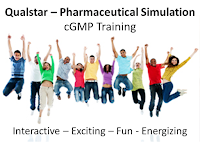Guidance for Industry and FDA Staff - Impact-Resistant Lenses: Questions and Answers represents the Food and Drug Administration's (FDA's) current thinking on this topic. It does not create or confer any rights for or on any person and does not operate to bind FDA or the public. You can use an alternative approach if the approach satisfies the requirements of the applicable statutes and regulations. As you read through the guidance, you'll find quite a number of useful hyperlinks to additional information and references.
Eyeglasses and sunglasses (eyewear) that are intended to affect the structure or function of the body or intended for use in the diagnosis of disease or other conditions, or in the cure, mitigation, treatment, or prevention of disease, are devices within the meaning of section 201(h) of the
Federal Food, Drug, and Cosmetic Act (the act) (21 U.S.C. 321(h)). These devices are subject to applicable device regulations under Title 21,
Code of Federal Regulations. Impact-resistant lenses reduce the number of eye injuries from eyeglasses and sunglasses. Glass lenses, plastic lenses, or laminated glass lenses can be made impact resistant by any method. However, lenses generally must be capable of withstanding the impact test described in 21 CFR 801.410. This guidance answers questions for manufacturers, importers, and testing laboratories on such topics as test procedures, lens testing apparatus, record maintenance, and exemptions to testing.
This guidance is a revision of “Impact-Resistant Lenses: Questions and Answers (FDA 87-4002),” issued September 1987. This guidance updates answers to questions that industry and consumers frequently ask FDA about impact-resistant lenses and FDA regulation of eyewear. The revision reflects the exemption of sunglasses from the Premarket Notification (510(k)) requirement effective February 19, 1998 (21 CFR 886.5850(b)). The revised document also includes a more detailed discussion about lens blanks, semi-finished, finished, and plano lenses, as well as import procedures. The terms "eyeglasses" and "spectacles" are used interchangeably in this document.
Eyewear products regulated by FDA are commonplace in the daily lives of the vast majority of the general public. FDA believes that impact-resistant lenses are an essential component of the safe design of these devices. The use of impact-resistant lenses in eyeglasses and sunglasses is addressed in 21 CFR 801.410.
For more information on this topic, contact the Division of Small Manufacturers, International, and Consumer Assistance (DSMICA) by phone at 1-800-638-2041, by fax at 301-847-8149, by e-mail at dsmica@fda.hhs.gov, or write to the following address:
U.S. Food and Drug Administration
Center for Devices and Radiological Health
Office of Communication, Education and Radiation Programs
Division of Small Manufacturers, International, and Consumer Assistance
10903 New Hampshire Ave.
WO66-4613
Silver Spring, Maryland 20993
#FDA #GMP #training #cGMP
Return Home:
The Health, Drug, Prescription, and GMP Supersite Blog











